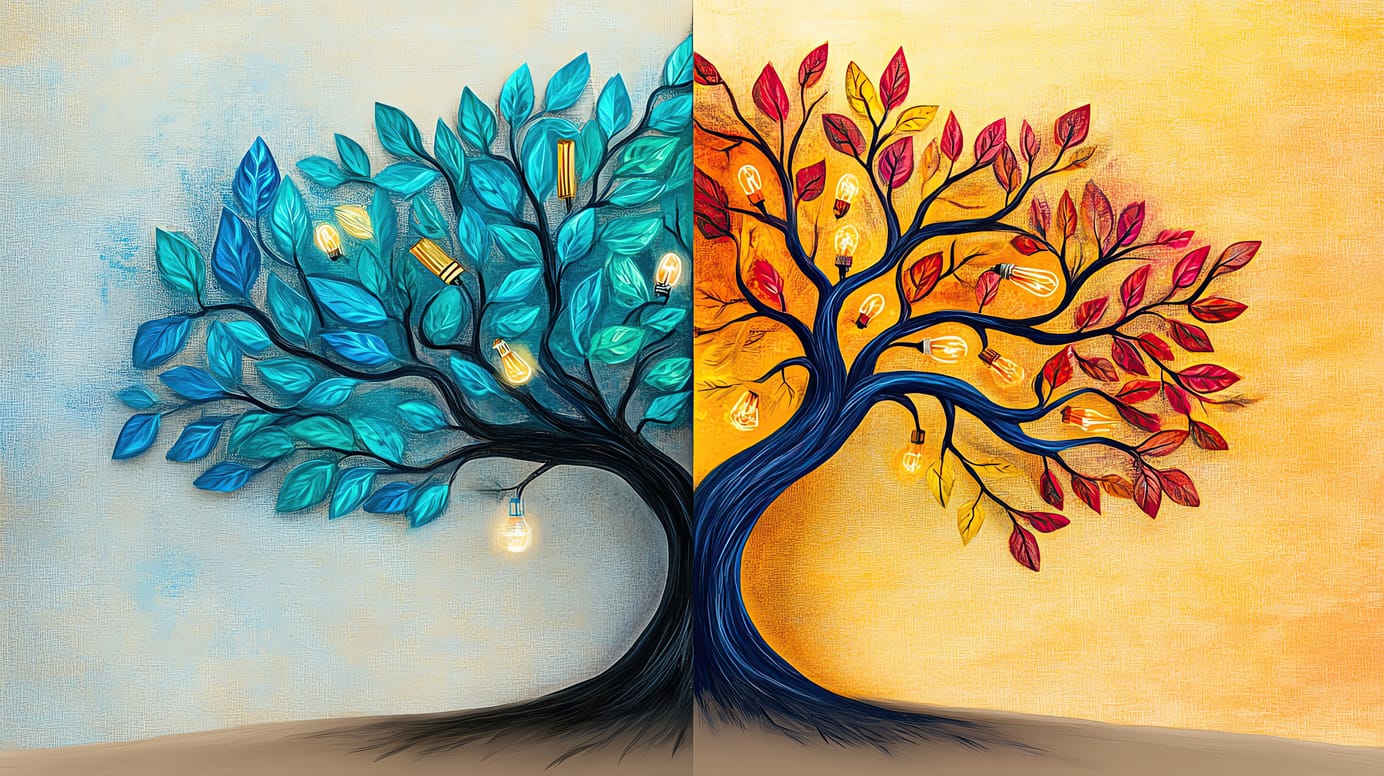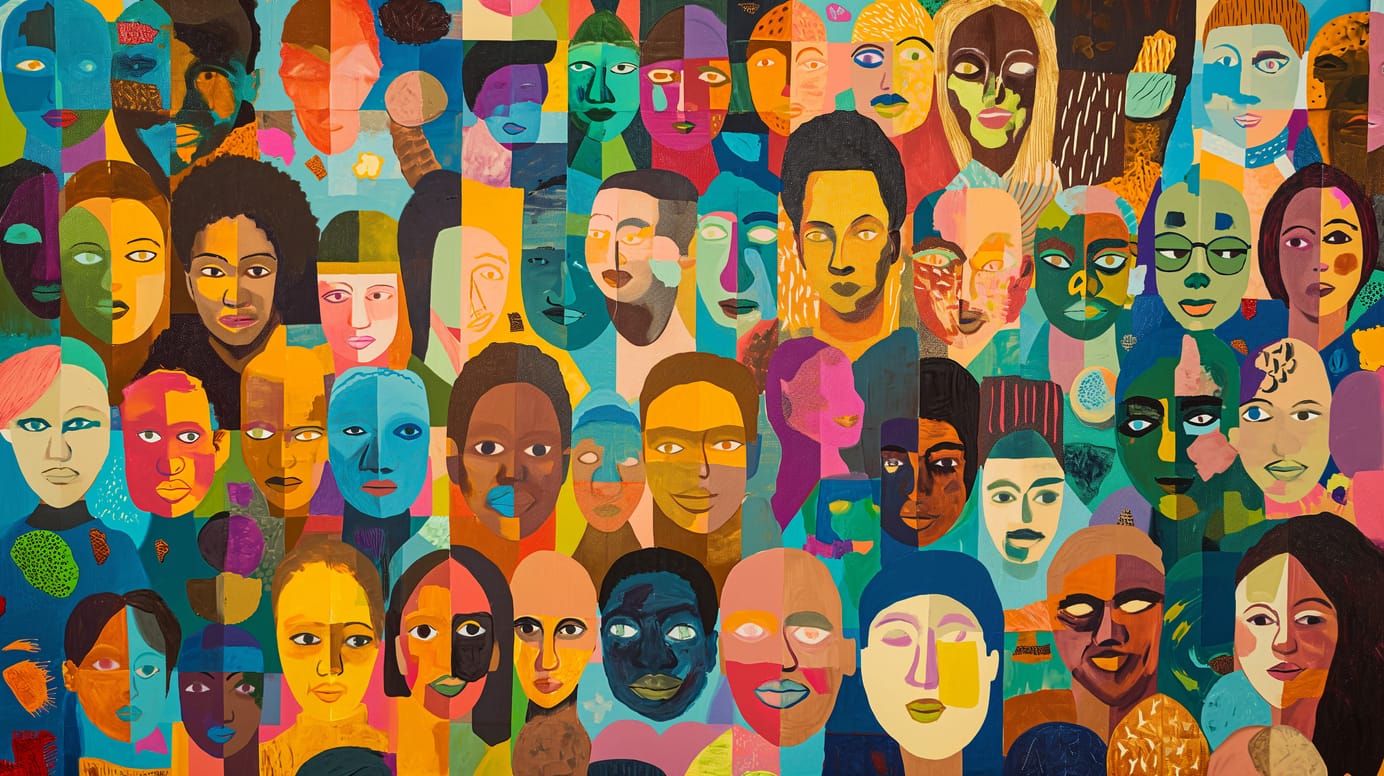The Myth of the Midlife Crisis: What Comes Next

Summary: The midlife crisis is more myth than reality. Discover why midlife is a time for reinvention, not decline.
You're celebrating your 50th birthday. Friends tease you with lighthearted jokes about "being over the hill," while social media nudges you toward retirement plans and anti-aging products. But deep down, you might be thinking, "I have so much ahead—why start slowing down now?"
This tension—between societal expectations and personal ambitions—affects far more people than you might expect. While it’s true that some individuals in their late 40s and 50s experience a dip in life satisfaction, the notion of the "midlife crisis" is more myth than reality. Today, many in their 50s, 60s, and even 70s are embarking on new careers, launching businesses, traveling, and enjoying active lifestyles in decades that were once synonymous with slowing down.
Research backs this up. Studies highlight that happiness follows a "U-curve"—often reaching new heights after the mid-50s. If you're one of the many who view these years as an opportunity to stay vibrant, purposeful, and fully engaged in life, this guide is for you.
The Myth of the Midlife Crisis
The term "midlife crisis" became popular in the 1960s thanks to psychoanalyst Elliott Jaques and later psychologist Daniel Levinson. Midlife was painted as a turbulent time when individuals, typically men, grappled with existential anxieties and unmet dreams. Images of impulsive sports car purchases and sudden career shifts became cultural shorthand for this idea.
However, the reality is quite different. Professor Elaine Wethington of Cornell University notes that only about 10–20% of people experience anything resembling the "classic" midlife crisis. More often, life challenges—such as job changes, health concerns, or divorce—occur at various stages of life, not just in the 40s or 50s. These moments are part of the human experience and not limited to midlife.
The U-Curve of Happiness
One of the most compelling arguments against the "crisis" theory is the U-curve of happiness. Economists David G. Blanchflower and Andrew Oswald looked at large datasets across multiple countries and found that people report a dip in well-being in their late 40s or early 50s, followed by significant improvements as they age.
Essentially, happiness peaks in youth dips slightly in midlife, then climbs steadily after about age 55.
Surprisingly, similar patterns appear in our closest primate relatives, chimpanzees and orangutans, suggesting that there may also be a biological basis for this lull. If this is the case, then this midlife dip might be less about crisis and more about quiet recalibration—adjusting to life's inevitable physical or emotional changes.
From “Crisis” to “Reinvention”
Many psychologists now prefer terms like “midlife transition” or “midlife evaluation” to reflect the more balanced reality that aging brings both challenges and opportunities. If we focus on the opportunities, midlife can become less about chasing lost youth and more about dynamic reinvention.
With rising life expectancies and careers following increasingly unconventional paths, your 50s or 60s could merely be the midpoint of a much longer, richer life story.
A New Life Framework
Thanks to advancements in medicine and wellness, it’s not uncommon to have 20 or more productive years ahead after what used to be considered “retirement age.”
Rather than living by the traditional path of college, career, and retirement, modern life often unfolds in chapters—filled with pivots, pauses, and fresh starts.
Whether you feel the need to reevaluate your life at 39, 52, or 63, it’s less a “crisis” and more your mind and body recalibrating to life’s evolving rhythms.
What Makes Midlife Powerful
Aging brings with it a unique strength known as "crystallized intelligence"—your accumulated knowledge, pattern recognition, and refined judgment gained over decades.
While younger individuals may excel in quick problem-solving (fluid intelligence), your depth of expertise and insight often peaks in your 50s and 60s. This is why many find these years are prime for leadership, creative contributions, and mentoring.
Psychologist Alexandra M. Freund at the University if Zurich notes that middle-aged adults tend to face fewer emotional upheavals compared to younger years. Life experiences such as navigating setbacks or loss leave you more resilient and better equipped to focus on what truly matters.
This phase of nurturing future generations, known as “generativity,” can elevate your sense of purpose and job satisfaction. For many, this is a chapter of professional and personal flourishing—not decline.
How to Thrive After 50 - Think Nonlinear
If you’re ready to rethink what midlife can look like, here are actionable ways to thrive in this pivotal stage of life:
Reassess Your Goals
The aspirations you had at 25 may no longer align with your current values. Take time to revisit and realign your goals with what excites you now. This fresh perspective can create room for unexpected opportunities, whether it’s a career pivot or personal growth pursuit.
Commit to Lifelong Learning
No matter your age, continuous learning helps keep your mind sharp and your possibilities open. Pick up a new language, enroll in a coding class, or even launch a business. Psychologist Carol Dweck’s research on growth mindset emphasizes that intelligence and abilities are moldable, proving there’s no expiry date on expanding your skills.
Tap Into Generativity
Mentoring, volunteering, or initiating community projects not only benefits others but also fosters a renewed sense of vitality in you. Sharing your hard-earned wisdom doesn’t just empower mentees—it reenergizes you with fresh perspectives.
Prioritize Wellness
Longevity isn’t just about living longer; it’s about living well. Create daily habits that promote physical and mental health, such as regular exercise, meditation, or brisk walks. Small actions compound over time, ensuring you remain active and engaged.
Expand Your Social Circles
Relationships across generations have immense value. Younger connections keep you up to date with emerging trends and ideas, while older friends inspire you with stories of perseverance and reinvention. Combining perspectives nourishes both curiosity and optimism.
Redefine Success
It’s common to feel unfulfilled chasing traditional markers of success like wealth or titles. Instead, focus on “inner success,” defined by meaning, growth, and relationships. When you know you’re writing the story of a longer life, you can afford to pursue what truly adds value and fulfillment.
Building Longevity Through Proactive Choices
Enjoying a healthy, purposeful life well into your 70s and beyond calls for mindful preparation.
- Schedule Regular Health Screenings: Early detection of potential issues ensures proactive management of your well-being.
- Focus on Nutrition and Sleep: A balanced diet and consistent rest have a profound impact on long-term energy and mental clarity.
- Stay Mentally Agile: Whether through books, courses, or creative hobbies, constant learning wards off stagnation and keeps your mind sharp.
Thriving Through Transitions
Once, it seemed life peaked by 50. Today, we know better. Research from the MacArthur Foundation's studies on midlife development shows that emotional and psychological growth often continue well into older adulthood. Furthermore, studies on the U-curve of happiness indicate that any dips in midlife satisfaction are often temporary, giving way to renewed enthusiasm and contentment.
Instead of viewing midlife as a linear continuation, see it as a dynamic period of reinvention—an era to cultivate the creativity, resilience, and insights that life thus far has gifted you.
A Final Thought
The next time someone mentions a “midlife crisis,” think of the bigger picture. What may seem like an obstacle is actually an opportunity—a reinvention waiting to happen. By focusing on growth, nurturing your physical and emotional health, and staying engaged with meaningful pursuits, there’s every reason to believe the coming chapters of your life can be the most fulfilling yet.
Life is a nonlinear story, and midlife is just another part of the adventure. Write it boldly and authentically—you have decades’ worth of wisdom and potential leading the way.






